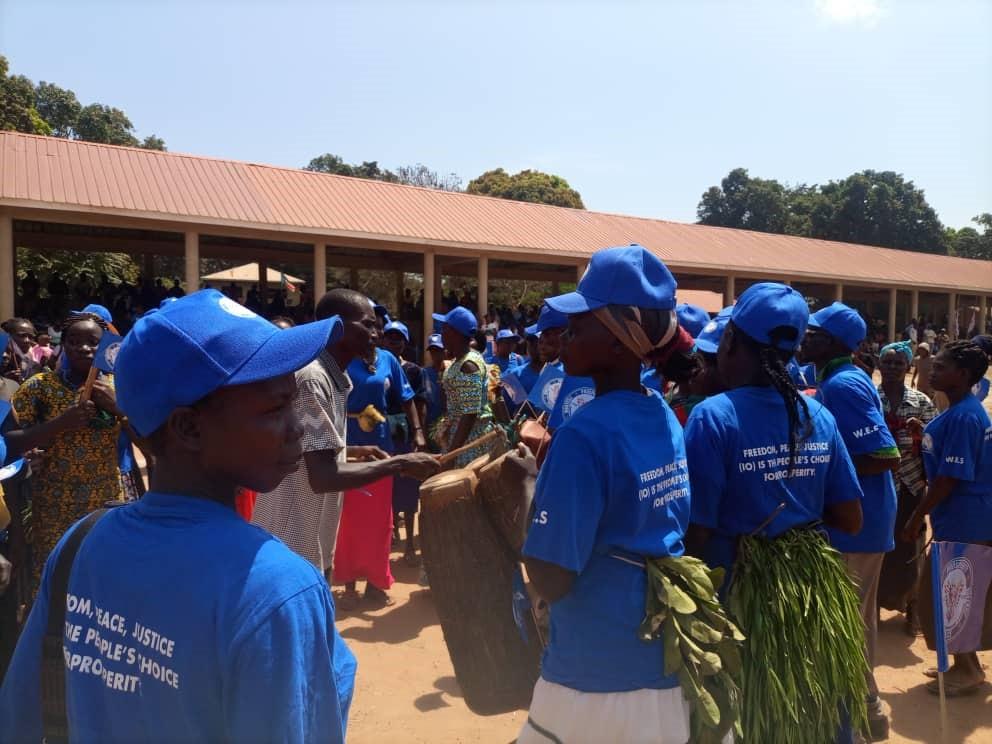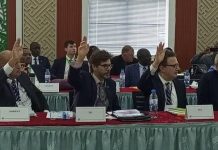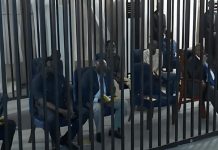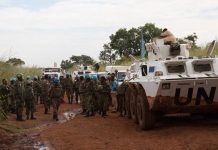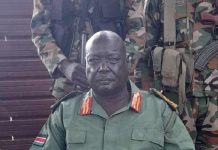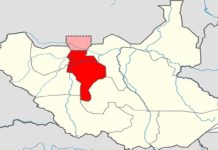Africa-Press – South-Sudan. South Sudan is certainly poised for a series of political showdowns as major and minor parties strategically plan to jostle for support ahead of the 2024 elections.
The stage was set when President Salva Kiir signed the Political Parties Act into law last year in compliance with the requirements of the roadmap spelling out the implementation of the peace agreement and opening an avenue for political mobilisatiom.
To stay in track with the quest for transition, the president is expected to reconstitute the Political Parties Council and the National Election Commission immediately after the enactment of the Political Parties Act.
This is because the roadmap stipulates that the two processes were supposed to have been completed in 2022 to pave the way for smooth political activities.
In addition, there was outrage over waning political space and the political dogfight over the SPLM party name—believed to be a crucial factor in the country’s politics.
Party name question
The year 2023 represents an opportunity to finally settle the long-running dispute over who will be registered with the name “SPLM” and who will lose it. This will be politically determined by the council during the upcoming registration.
While addressing the SPLM National Liberation Council last year December, President Kiir was unflinching and bold about it.
He was categorical that they are the bona fide owners of the SPLM, and they do not identify with the suffix “IG.”
“Whether people like it or not, we are SPLM,” Kiir said, adding, “I was saying there is no party called SPLM IG, there is SPLM, and there is SPLM/A IO.”
This was a clever reply to SPLM/A-IO members who hold the opinion that President Kiir’s party is a subsidiary of the mother party, SPLM, the same as their party.
Kiir would then drop a weighty hint that no parties would be allowed to share names when doors open to register for names.
“[Before] we go for the election, people must register their parties, and there is no one name that is going to be shared by more than one party; this is the law of the parties,” he said.
The Political Parties Act, 2012, Chapter IV, under the establishment of political parties, states that “no person shall belong at the same time to more than one political party.”
It will almost certainly remain unresolved as long as SPLM IO claims that the mainstream violated the Arusha agreement.
In several cases, SPLM IO officials have continued to affirm Dr Riek Machar’s continued membership in the SPLM, claiming that he was elected through the SPLM convention and must be removed by the SPLM convention in accordance with the Arusha agreement.
On the other hand, SPLM-IO insisted on not changing its name, adding that the name belonged to all the factions.
However, Prof Abraham Kuol Nyuon, a political think tank averred that the two parties cannot register under the same name, SPLM.
“The Political Parties Act stated very clearly that there is no party that will register with a similar name and similar symbols, and therefore, those people who have registered SPLM as their own party are the only ones who will be able to own the party,” he said.
“But if there is no amendment, those from SPLM-IO will not get the opportunity to register,” Kuol added.
He called on the parties to decide on the name before the registration of political parties.
But while addressing representatives from various political parties across the country, during the ANC’s launch of the new year program on January 7, 2023, Suleimani Yohanues, one of the executives in the SPLM-IO National Secretariat, said that the party is set to widen the rollout of political activities across the country.
“This year we will widen our mobilisation to all areas and in all villages so that people will know our missions, visions, and program,” Suleimani said.
The officer expressed that regardless of the lack of political space in some areas under SPLM control, the opposition party could continue to expand its mobilisation to ensure that the vision and mission of SPLM-IO reach everybody, including the grassroots.
In the same event, the secretary-general of the ANC-South Sudan, Akol Atak, said their party is prepared and set to participate in the upcoming national election.
He said the ANC party would embrace massive mobilisation, both for supporters and resources, to ensure that all the plans for 2023 are implemented in order to win the coming election.
Akol said that offices had been put in place to ensure that necessary political engagement starts ahead of the upcoming election.
He added that the popularisation of the party would involve political rallies at all the schools and public places and at all levels in the country.
“The priority is popularising the ANC. “This will be achieved through intensive party activities at all levels and in all sectors by making sure that meetings, rallies, debates, press statements, and media interviews are conducted to explain the party’s position,” Akol said.
Besides, Peter Lomude, a representative (SSOA), appealed to the political parties to unite in order to face the major parties during the election.
Lomude stressed the importance of parties, particularly the opposition group, forming alliances as they prepare for the election in order to win the upcoming election.
“I believe that coalition is critical if we are to effect change; it is critical that we identify ourselves by forging alliances to assist the people of South Sudan in realising the change that they are yelling for,” Lomude said.
He appealed to other parties to join hands to ensure that the road is implemented on time.
The Republican Party representative, Santino Mabior Wol concurred with Lomude, arguing that parties would have more energy if they worked together.
“What I need is for the ANC to bring us together from different parties so that we become one and strong to face the upcoming election,” Mabior said.
He appealed to the leadership of the ANC to act as a coalition that would bring all parties together as one and participate in the upcoming election.
Bol Makueng, Secretary for External Affairs of the Sudan People’s Liberation Movement (SPLM), said that the SPLM-led government is ready to grant political space to all parties.
He recognised the need for parties to be involved in peaceful politics and continue to interact in order to build the country.
“It is when we communicate and talk to each other that we can discover the missing link,” he said.
South Sudan will head to the general elections in 2024 as per the stipulations of the roadmap. Before then, parties must be registered, boundaries must be demarcated, and an electoral system must be set up and properly funded to carry out the exercise.
For More News And Analysis About South-Sudan Follow Africa-Press

